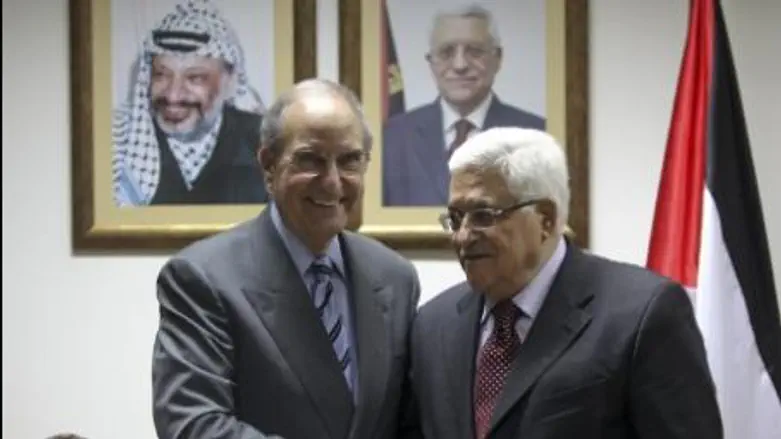
The American-mediated “indirect talks” between the Palestinian Authority and <?xml:namespace prefix = st1 ns = "urn:schemas-microsoft-com:office:smarttags" />
The Palestinian Authority officially approved the American initiative to resume what once were described as “negotiations” in the ”peace process.” Following years of bargaining the terms of what now is usually called the “diplomatic process,” the PA has won wide international support for all of its demands. It has the support of the Obama administration, which opposes Jewish ”settlements’ -- decades-old neighborhoods, some of which are populated by nearly 30,000 Jews -- in a large part of
Prime Minister Binyamin Netanyahu said there must be direct talks before an agreement can be reached, while PA negotiator Saeb Erekat stated in Ramallah, "The proximity talks have started.” In fact, they took a recess as Mitchell prepares to return to the United States Sunday night, presumably to map out further tactics.
With virtually all analysts and observers saying his chances for success are low, the PA is working from the advantage that if
 PA concessions continue to be on the tactical front, agreeing to “proximity talks” despite
PA concessions continue to be on the tactical front, agreeing to “proximity talks” despite
Mitchell has four months in which to work, which is the time limit the Arab world has set for the talks to fail or succeed. It also coincides with the approximate end of
President Obama is expected to continue to move aggressively to force both sides to accept an agreement, which from the PA side would include sovereignty over all of the land restored to
There also are growing suspicions that Defense Minister Ehud Barak, chairman of the Labor party that is in the Netanyahu government, has forged a close political friendship with President Obama, who would prefer a new coalition government that includes the Kadima party, headed by Tzipi Livni.